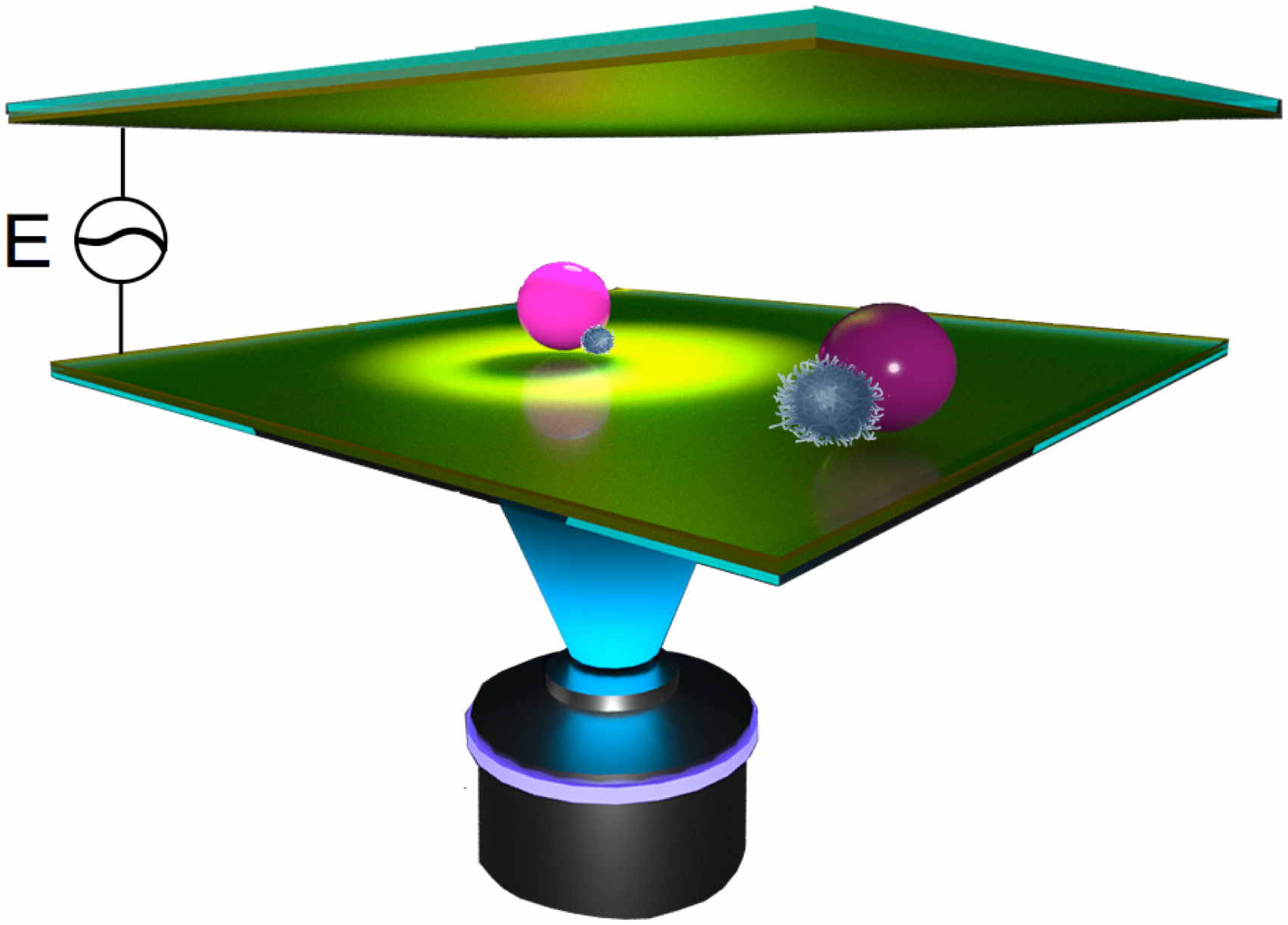The group of Prof. Lucio Isa has pioneered the fabrication of reconfigurable artificial microswimmers incorporating soft thermoresponsive polymers. The particles, powered by AC electric fields, use light-induced temperature differences to change shape and dielectric properties, in order to adapt their propulsion. The work was possible thanks to a collaboration with D-MATL's Prof. Martin Kröger and with the group of Prof. Angel Alegria CFM (Spain) via the EUSMI network.
Alvarez et al. have designed and fabricated active colloidal clusters whose dynamical behavior changes with externally controlled temperature stimuli mediated by light. The colloidal clusters, formed by sequential capillarity-assisted particle assembly, comprise light-absorbing polystyrene microspheres and microgels out of a copolymer incorporating Poly(N-isopropyl acrylamide) (PNIPAM). In water, PNIPAM exhibits a lower critical solution temperature and, correspondingly, PNIPAM-based microgels shrink and change their dielectric properties when heated above (approximately) 32 ºC. The reconfiguration of the microgels couples into their self-propulsion, powered by AC electric fields, endowing them with an adaptation scheme in response to local temperature changes induced by illumination. Upon crossing the critical temperature, the particles change direction and their velocity undergoes a two-fold drop. This behavior is experimentally quantified and theoretically predicted, providing a comprehensive description of the particle trajectories. Moreover, spatial modulation of light signals enables local control of the reconfiguration and thus of the dynamics, leading to emergent collective behavior, such as particle accumulation in regions of high light intensity. Finally, the design and fabrication of more complex geometries leads to further interesting dynamical behavior, such as the change of chirality in active colloidal clusters with circular motion.

The combination of multiple materials through capillary assembly shows great potential to design and fabricate artificial microswimmers with different responsive elements, encoding a reconfiguration pathway during synthesis. The feedback between particle configuration and motility opens up exciting directions in the fabrication of adaptive active colloids, taking a step further towards autonomous and adaptive systems at the microscale.






